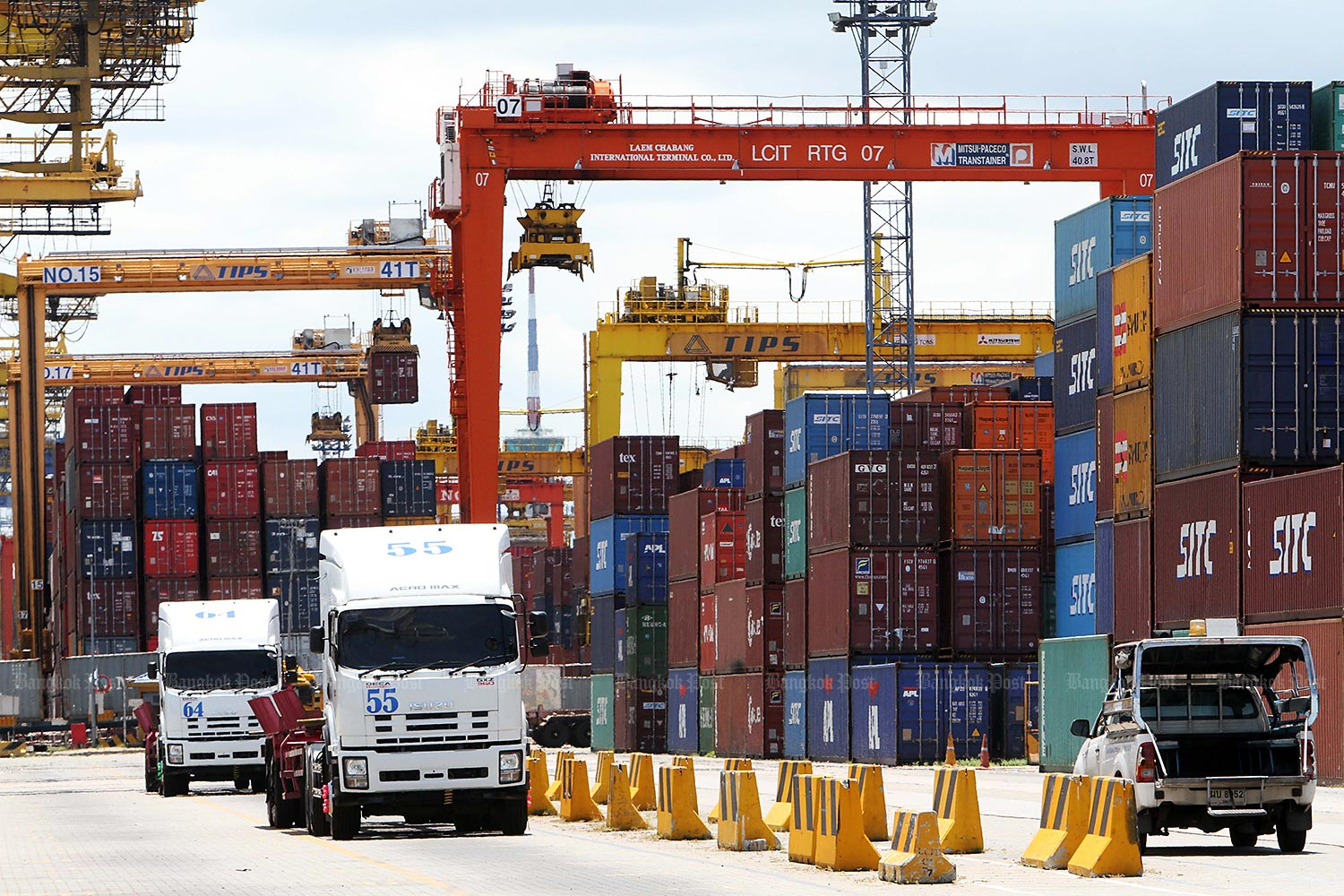
Exports dropped for a third straight month in December, falling by 14.6% year-on-year, leading to annual growth of 5.5% in 2022.
The Commerce Ministry reported yesterday the customs-cleared value of exports contracted 14.6% to US$21.7 billion last month, while imports decreased by 12% to $22.8 billion, resulting in a trade deficit of $1.03 billion.
Exports of agricultural and agro-industrial products declined for three consecutive months, contracting 11.2% year-on-year in December to $3.59 billion.
Products that registered a decrease included rice (-4.1%), cassava products (-12.4%), rubber (-47.7%), canned and processed fruits (-20.5%), and sugar (-45.4%).
Industrial product exports also dipped for a third consecutive month, falling by 15.7% from December last year to $17.2 billion.
Products that decreased included automobiles, equipment and parts (-17.1%), oil-related products (-25.7%), computers and equipment (-24.3%), and gems and jewellery (excluding gold) (-12.4%).

The export contraction last month was attributed mainly to the slowdown in the global economy and weak consumer purchasing power, especially in major markets such as the US, the EU, China and Japan. Other Asian countries also reported a drop in exports.
The ministry cited some positive factors, including the continued decline in freight rates, the implementation of the ministry's shipment strategies and the recovery of international tourism, which resulted in higher exports of related products.
For 2022, exports expanded by 5.5% to $287 billion, while imports rose by 13.6% to $303 billion, resulting in a trade deficit of 16.1 billion.
"The export growth of 5.5% exceeds the ministry's target of 4%," said Commerce Minister Jurin Laksanawisit. "This stems from the ministry's efforts to facilitate and stimulate exports, including a successful attempt to lower border trade obstacles by negotiating with neighbouring countries and working with both public and private sectors in central and provincial areas."
According to Mr Jurin, the meeting of the Joint Public and Private Sector Consultative Committee on Commerce, which includes the Thai Chamber of Commerce, the Federation of Thai Industries and the Thai National Shippers' Council (TNSC), agreed to set an export growth target of 1-2% this year.
In a related development, Chaichan Chareonsuk, president of the TNSC, said the Bank of Thailand has been asked to help tackle the baht's appreciation as a strong baht will adversely affect the pricing and competitiveness of exports compared with competitors' goods priced in weaker currencies.